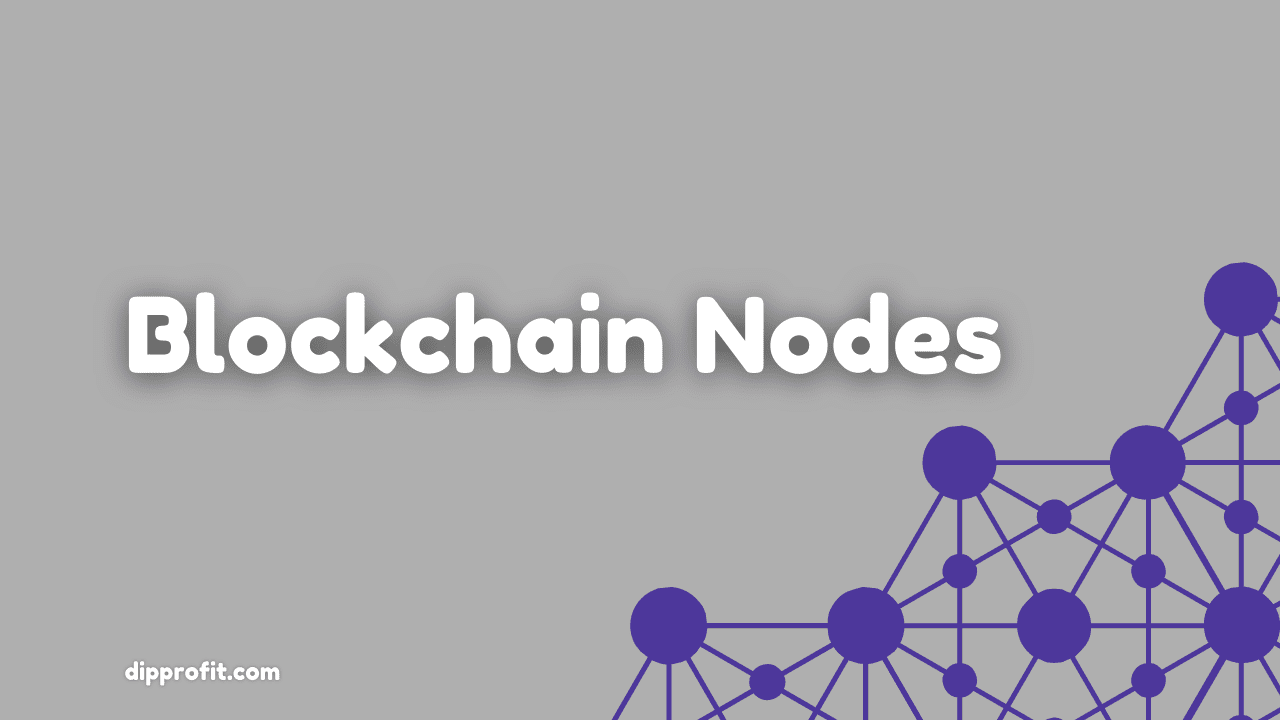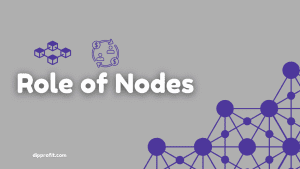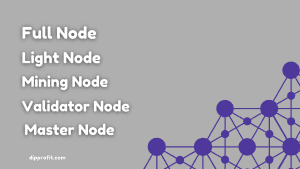
A blockchain node or a node is a fundamental component of a blockchain network.
It plays a vital role in maintaining the integrity and security of the distributed ledger. Let’s delve into the details and explore what a blockchain node is all about
In simple terms, a blockchain node is a computer or device that participates in maintaining the distributed ledger of the blockchain which is responsible for storing a copy of the entire blockchain, verifying and validating transactions, and broadcasting new transactions and blocks to other nodes in the network.
Role of Nodes in a Blockchain Network
In the context of typical everyday human interaction, a blockchain node can be compared to a reliable mediator or observer that ensures transparency in transactions.
Just as humans interact and exchange goods or services, a blockchain node facilitates and validates these interactions in a secure and decentralized manner.
Imagine two individuals exchanging digital assets or conducting a financial transaction.
A blockchain node acts as a neutral party that oversees and verifies how valid and certain these transactions are.
Blockchain nodes ensure that the digital assets being exchanged are authentic, the transaction is valid, and the parties involved have the necessary credentials or funds.
Here are some other purposes of blockchain nodes:

- Transaction Validation: These nodes are there to verify the authenticity, integrity, and accuracy of transactions by checking them against predefined rules and consensus protocols.
- Block Creation: Full blockchain nodes participate in the creation of new blocks by collecting valid transactions, grouping them into blocks, and adding them to the blockchain.
- Consensus Mechanism: Nodes collaborate to achieve consensus, where they agree on the validity of transactions and the order in which they are added to the blockchain. This agreement ensures the immutability and integrity of the distributed ledger.
- Network Connectivity: Nodes communicate with each other to propagate transactions and blocks across a blockchain network. They relay information, validate data, and ensure the synchronization of the blockchain.
Types of Blockchain Nodes
Blockchain nodes are characterized according to the work they perform in a blockchain. Some have heavy duties assigned while others are lightweight.

Full Node
A full node stores a complete copy of the blockchain and independently validates and relays transactions across the network. It performs various tasks, including transaction verification, block creation, and participation in consensus protocols.
Light Node
In the case of light nodes, a light node doesn’t store the entire blockchain but maintains a subset of data. It relies on full nodes for transaction validation and verification. Light nodes are commonly used in resource-constrained environments or mobile devices.
Mining Node
A mining node, or miner, is a special type of blockchain node that participates in the process of mining new blocks. Miners use powerful computing resources to solve complex mathematical puzzles, aiming to add new blocks to the blockchain. They compete with each other to find the solution, and the first miner to solve the puzzle is rewarded with newly minted cryptocurrency.
Validator Node
Validator nodes are specific to blockchain networks that use proof-of-stake (PoS) consensus algorithms. Instead of mining, validators stake their cryptocurrency as collateral to secure the network and participate in block validation. Validators are selected to propose and validate blocks based on the amount of cryptocurrency they hold and are willing to stake.
Master Node
A master blockchain node is a type of node that performs additional functions beyond transaction validation and block creation.
These blockchain nodes are a type of node that is found only in certain blockchain networks that perform specific functions beyond basic transaction validation. They are a crucial component in the network’s infrastructure, sustaining different operations such as maintaining a copy of the blockchain, facilitating advanced features, and contributing to network consensus.
The reason they are called “master nodes” is because they are considered the authoritative nodes within the network. They have additional responsibilities and privileges compared to regular nodes.
Master nodes play a role in governing the network, making important decisions, and ensuring the smooth operation of the blockchain.
It typically requires a significant amount of cryptocurrency to be staked or locked in a wallet as collateral. Masternodes provide advanced features, such as instant transactions, privacy enhancements, and decentralized governance.
Due to these added responsibilities on master nodes, they require an added amount of electricity and power to run at maximum capacity.
These requirements help ensure that the systems are reliable and that the blockchain network is very secure.
How to Make Money with A Master Node
Basically, master node operators can earn rewards by providing essential network services, transaction fees, and other incentives when operating a node.

There are a lot of requirements to get a master node such as a lot of coins in stake, which varies from coin to coin, and a Linux server running 24 hours to serve as a master node.
The rewards you get from being a master node operator also vary from coin to coin. The percentage of rewards you get depends from coins to coins as well.
Also, some blockchain networks allow master nodes to collect a percentage of transaction fees processed through the network. As more transactions occur on the blockchain, the percentage amount being earned increases.
Depending on the blockchain protocol, master nodes may have the ability to generate income through user fees or service charges by offering to host some decentralized applications on their servers and other privacy features.
Disclaimer: The information provided here is for informational purposes only and should not be considered financial or investment advice. Always do your own research and consult with a professional advisor before making investment decisions.
So, these are some of the ways to make money with master nodes as a master node operator.
Some popular master nodes include Dash (DASH), PIVX (PIVX), Zcoin (XZC), Syscoin (SYS), and Horizen.

See also: How To Make Money With Web3 in 2023
What is the Purpose of Blockchain Technology
The purpose of blockchain technology is to provide a decentralized, transparent, secure, and immutable system for recording and verifying transactions and data by introducing a distributed ledger system managed by a large network of participants.
It aims to reshape traditional systems by providing an immutable ledger where transactions are recorded and verified. In this design, blockchain nodes play a pivotal role.
They serve as the pillars of security by validating the transactions thereby contributing to the decentralized nature of the system
See also: Exploring the Features of Blockchain Technology and 6 Real-World Uses